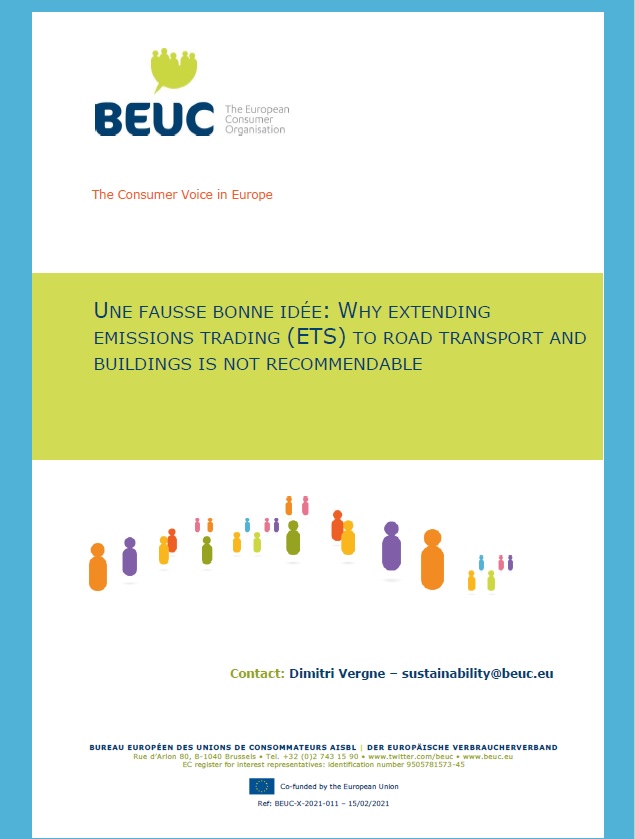EU must prioritise sectoral climate laws over emissions trading, urge consumer groups
EU must prioritise sectoral climate laws over emissions trading, urge consumer groups
BEUC NEWS - 22.02.2021
In a new position paper, BEUC argues that the extension of emissions trading is a ‘high risk, low reward’ measure that will needlessly take up time and political capital, while potentially being counterproductive.
To tackle the climate crisis, a rapid change in the way we move around, heat and cool our homes is needed. The EU is considering many actions to spur this change within its European Green Deal. One of these actions is to extend its Emissions Trading System (ETS) to road transport and buildings.
We consider this what French-speakers might call a "fausse bonne idée": a good idea in principle, but not in practice. There are a number of reasons for this:
- It distracts policymakers from taking more effective measures. Expanding emissions trading would compete – in terms of decision-makers’ time, resources and political capital – with measures, such as car CO2 targets, that have a proven track record in reducing CO2 emissions.
- It will have a negative financial impact, especially on people with lower incomes.
- It could lock people into unsustainable lifestyles. Consumers’ demand for mobility and heating/cooling is relatively inelastic to price signals. A price change in these areas does not necessarily lead to a change in consumption patterns. This is because the upfront cost of buying a new car or insulating a house is high. Increasing the cost of existing activities – without providing alternatives – would therefore simply trap people and create social hardship.
Focus on manageable policies with a big impact
We urge policymakers to avoid a what’s likely to be long, drawn out and highly technical emissions trading reform. Instead, they should make use of levers that are easier, more efficient and that have often already proven to deliver results.
This includes actions as diverse as setting more ambitious CO2 emission targets for cars, investing in long-distance rail, pushing banks to offer more green mortgages for deep building renovations, introducing mandatory energy performance standards for buildings, and phasing out fossil fuels.
See also:
- BEUC position on carbon pricing
- How to use price to change habits in the mobility sector
The European Consumer Organisation
Europäischer Verbraucherverband
Bureau Européen des Unions de Consommateurs



